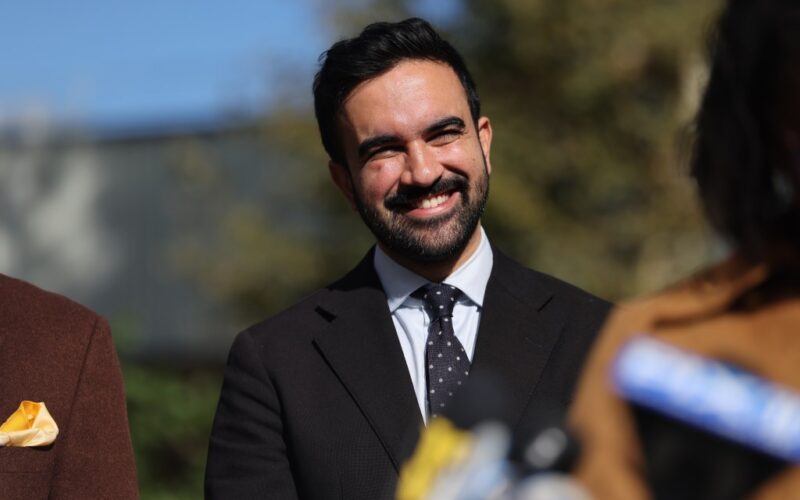I remember the first time I set foot inside Jetro, a wholesale market in Brooklyn. My parents used to drive a yellow station wagon from Yorkville to Flatlands in Brooklyn. If I was lucky, my family would make a day trip out of it and head over to Coney Island.
Those trips to Jetro — and subsequent trips to places like Costco, showed me the lengths to which families would go to get food at reasonable prices. Here we are, 30 years later, and affordable food is scarcer than ever. The food disaster critics of Zohran Mamdani warn about is already happening in New York City, which is why the time has arrived to test municipal grocery stores.
Earlier, in a June Wall Street Journal op-ed, Gristedes and D’Agostino supermarket magnate John Catsimatidis engaged in fearmongering, warning that stores like his would go out of business if municipal grocery stores were introduced, claiming it would result in Soviet-style bread lines due to a lack of available food.
But those lines already exist in NYC — at New York City food pantries.
There has been an 85% increase in New York City food pantry, soup kitchen and community food program monthly visits, according to City Harvest. That is 46 million annual visits, up from 25 million in 2019.
Sixty-seven percent of New York City food pantry visitors are employed, according to a Columbia University and Robin Hood study.
There are now one in four New York City children experiencing food insecurity compared to one in five only two years ago, according to Feeding America.
And the numbers are about to get worse.
Congress just cut benefits to the Supplemental Nutrition Assistance Program (SNAP) that will impact 2.4 million Americans, according to the Congressional Budget Office.
The independent expenditure committee I founded, OneNYC, believes Zohran Mamdani is the best choice for New York City mayor. OneNYC also believes the spike in food pantry visits is of much greater concern to New Yorkers than new competition for the existing, overpriced supermarkets.
Food pantries are intended to help people get through emergencies, not to be their regular supply of groceries.
It’s the right time to give Mamdani’s idea of opening a city-owned grocery store in each borough a chance.
Municipal government ownership can eliminate much of the red tape that opening a large supermarket would face in areas zoned for light manufacturing. Moreover, these city-run stores on city property wouldn’t pay local taxes or rent, allowing them to pass on savings to shoppers.
The New York City Council in 2009 started the Food Retail Expansion to Support Health (FRESH) program by giving tax incentives to supermarkets that open in underserved neighborhoods. The problem is these are still for-profit grocery stores, and many of the roughly 30 stores now in operation are expensive.
A more successful effort has been the six markets overseen by the city’s Economic Development Corp. that are on municipal property and charge very low rents to food vendors. At one of these facilities, Essex Market, for example, food costs much less than at neighboring supermarkets, according to the Gothamist.
Food deserts (where residents live at least one-half mile from a supermarket) remain a major issue in more than two dozen New York City neighborhoods, according to a 2022 WCBS-TV report. Critics of Mamdani’s plan suggest five municipal groceries won’t help much because many residents don’t own cars and won’t travel to their nearest location, even if they live in food deserts like Brownsville or Stapleton.
There is evidence to the contrary, from the excursions of my family to Jetro, to others willing to travel within Brooklyn. In fact, half of the current members in the Park Slope Food Coop live greater than one mile away, according to a 2020 PSFC study. The membership represents disparate communities from Caribbeans to Hasidic Jews. What brings them together, since neither group has much of a presence in Park Slope, is that the PSFC charges about 40% less for similar items sold at Whole Foods.
Running a municipal grocery is not as radical an idea as critics would lead one to believe as they point to a failed experiment in Kansas City. But Atlanta on Sept. 8 opened a two-story, government-run grocery store in a downtown food desert and plans to open more.
The time is now to tackle a food crisis that is already happening right before our eyes.
Salem chairs OneNYC, an independent expenditure committee formed by business leaders, policy-makers and previous government officials committed to supporting principled, effective leadership and robust, data-driven policies that make living and doing business in New York affordable for all.








